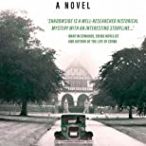With a new drama about Ruth Ellis’s trial and execution for murder seventy years ago coming to television, Neil Root looks at how in just five years the leading lawyer Christmas Humphreys, also Britain’s foremost Buddhist, prosecuted and secured the death penalty on Timothy Evans, Derek Bentley and then Ellis, three of the greatest miscarriages of justice of the twentieth century.
This week, ITV screens A Cruel Love: The Ruth Ellis Story starring Lucy Boynton as Ellis and Toby Jones as John Bickford, her defence lawyer at her June 1955 trial. The drama should shed more light on the travesty of that trial, but there’s another side of the unsettling story, that of the prosecuting barrister who secured the death sentence against Ellis, a battered woman.
But it wasn’t only Ellis’s case in which that lawyer secured the death penalty in highly questionable trials. Three of the most infamous miscarriages of justice: Timothy Evans, who was executed in 1950, and pardoned in 1966; Derek Bentley, who was executed in 1953, pardoned in 1993, and had his conviction quashed in 1998; and, as Ruth Ellis, an abused woman, and the last female to be executed in Britain in 1955.
Christmas Humphreys, one of the leading prosecuting lawyers in Britain between the mid-1940s and mid-1960s, was later a judge at the Old Bailey. Humphreys was the barrister given the responsibility by the Crown to deliver the death sentences on Evans, Bentley, and Ellis in their murder trials between 1950 and 1955.
The British government, and therefore judiciary, became hardline and very repressive in the immediate post-war years because of a crimewave and the fear that crime was getting out of control. But no one political party oversaw these miscarriages. Evans was hanged under the aegis of the Labour Home Secretary James Chuter-Ede in Clement Attlee’s administration; Bentley was executed while David Maxwell Fyfe fulfilled the same role in Churchill’s third administration; and Ellis went to the gallows during Anthony Eden’s National Liberal and Conservative administration, when Gwilym Lloyd George was Home Secretary.
Christmas Humphreys was extremely well-connected in the legal world, stemming from the fact that his father, Travers Humphreys, was a famous barrister and a judge. Humphreys was also known to be close to the then Lord Chief Justice Rayner Goddard, who held that position from 1946 to 1958. Goddard was said to be something of a sadist who used to sometimes soil his trousers in court by ejaculating into them when passing the death sentence, according to the late barrister, author and Rumpole of the Bailey creator John Mortimer, who reportedly heard it from Goddard’s legal clerk.
Humphreys was a highly effective barrister. But he was also a cold careerist and professionally compassionless Buddhist, a very ironic dichotomy. He set up the British Buddhist Society in 1924 and authored many books on the religion. Humphreys was obviously able to compartmentalise his Buddhist principles of compassion away from his ruthless career in the courtroom.
Christmas Humphreys’ memoir shows that his belief in Karma and Reincarnation enabled him to square his conscience, as those facing the death penalty in front of him had caused themselves to be there, either in that life or a previous one, and he saw it as his Dharma (duty) to deliver that Karma.
Published in 1978, his memoir is a whitewash, with no mention of the Timothy Evans case (Evans had been pardoned twelve years earlier), just a brief paragraph on Derek Bentley, and no mention of Ruth Ellis in the text at all, although she was mentioned on the flyleaf to help sell the book. This is despite the cases of Timothy Evans, Derek Bentley, and Ruth Ellis already then being three of the most well-known miscarriages of justice of the twentieth century, and undoubtedly the biggest cases of Humphreys’ career.
But in the years towards the end of his life, Humphreys perhaps felt a flicker of responsibility. He paid for the funeral of Ruth Ellis’s son Andre, who killed himself not long after visiting Humphreys. When Andre asked why he had pushed to get the death penalty on his mother, Humphreys replied that he was ‘playing a game’. No more clinical description can arguably be made of the work of a criminal prosecuting lawyer.
Neil Root is the author of The Murder Gang: Fleet Street’s Elite Group of Crime Reporters in the Golden Age of Tabloid Crime. A Cruel Love: The Ruth Ellis Story premieres on Wednesday 5th March 2025







